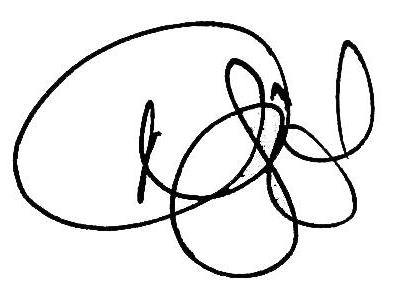by Nigel Savage
Thursday, February 22, 2018 | 7 Adar 5778
Dear All,
First up: space is filling up quickly for Pesach at Freedman. We still have some slots for the middle days and second days. It’s a beautiful time of the year. Do come.
Similarly: we have a remarkable line-up for Shavuot led by (in alphabetical order, lest I diss anyone) Shir Yaakov Feit, Art Green, Jill Hammer, Eve Ilsen, David Ingber, Shoshana Jedwab, Avram Mlotek, Yael Kornfeld Mlotek, and Eden Pearlstein. This is for certain going to sell out, and if you know that you want to come, book sooner rather than later.
Finally, (and feel free to forward this email to someone who’s the perfect fit for this) we’re recruiting now for spring, summer, and fall cohorts of Adamah; to be a Hazon intern in the summer; for the New York Ride & Retreat at the end of the summer; and to become a Teva educator in the fall. If you want to learn, grow, push yourself, and meet amazing people – sign up for one of those programs. More info below. (And – oh yes – if you want extra incentive; or you’re a parent or grandparent forwarding this email to a college student or 20-something) check out this piece on DatingAdvice.com (!) which features just a tiny handful of the many many happy couples who have met at one of our programs…
Ok. Those were the business headlines.
In other news:
It turns out that when you’re in aveilut – when you’re mourning – you can give mishloach manot (the gifts of food that we give to friends on Purim) but not receive them.
I learned this fact not quite the old-fashioned way.
It was the day of Tu b’Shvat and I was on a plane, eating the kosher meal I’d ordered on my Emirates flight, on my way back to Manchester for my Dad’s funeral. I wasn’t learning from a book. We had good Wi-Fi, and so I was learning the halachot of mourning – 35,000 feet over Saudi Arabia.
This seems like a metaphor for… something.
My dad was born in 1932. They didn’t have Wi-Fi on planes in 1932.
Never mind Wi-Fi; they didn’t even have dial-up in 1932.
They didn’t have Google or Facebook or the World Wide Web.
They grew oranges around Palo Alto.
Radio City opened that year and they did the first Maxwell House Haggadah.
In the United States driving without a seat belt was legal but purchasing and consuming all alcohol was illegal. (Assault weapons didn’t yet exist; they were named by Hitler in 1944and were for armies, not civilians.)
Britain didn’t have a National Health Service.
The EU didn’t exist.
The State of Israel didn’t exist.
Poland had three million Jews.
But Purim – a young holiday by Jewish standards – was of course twenty centuries old in 1932. The megillah says, near the end, “and these days of Purim shall be remembered and celebrated in every generation…”
And I was thinking of that line in Hamilton: “Oceans rise, empires fall…”
Lin-Manuel Miranda isn’t just having fun at George III’s expense; I do think he’s quite consciously speaking to the present moment. The lifespan of a parent or a grandparent is a remarkable thing; the lifespan of a human being, if we’re blessed that it not be cut short. My Dad outlived the British Empire. He outlived the Soviet Union.
While I was away I read just two books. I (re-)read Nelson Mandela’s autobiography, and at the recommendation of Elana Ponet (thank you, Elana) I read Albie Sachs’ The Soft Vengeance of a Freedom Fighter.
In the short time I read them I went to three weddings and my father’s funeral and they balanced and interwove with each other – the books, and the intense life-experiences – in stunning and fascinating and deeply provoking ways.
And in the lead-up to Purim and Pesach you couldn’t possibly read two more apposite or more inspiring books. Of the two I especially commend the Albie Sachs’ book because it (and he) is lesser known and it’s quite ridiculously fun to read. (And I say that despite the fact that it’s the story of him recovering from having his arm blown off, and losing sight in one eye, at the hands of the South African security forces.)
But that’s why I share this now. That’s how these pieces fit together. How do we live? Whom do we admire? Who are our role models? What media do we expose ourselves to and why and what impact does it have on us? What, in fact, do we remember, and what do we choose to remember? How do we hold memory – of wrongdoing; indeed of evil – and not come out warped? How do we forgive? And how do we inscribe ritual – ancient, new – in order to sacralize our lives and the world we live in?
I leave you with this story from the megilla – not megillah, the book of Esther, but Megilla 7b, a tractate of the Talmud which cathects with the Purim story for a little while. And I leave it with no comment, just to read and think about.
Rabba and Rabbi Zeira prepared a Purim feast with each other, and they became drunk [as one is required to do on Purim].
Rabba arose and slaughtered Rabbi Zeira.
The next day, he, Rabba asked (G!d) for mercy, and (G!d) revived him [Rabbi Zeira]. The next year, Rabba said to Rabbi Zeira: Let Master come and let us prepare the Purim feast with each other. He [Rabbi Zeira] said to him [Rabba]: Miracles do not happen each and every hour…
Shabbat Shalom, Purim Sameach,

Nigel
